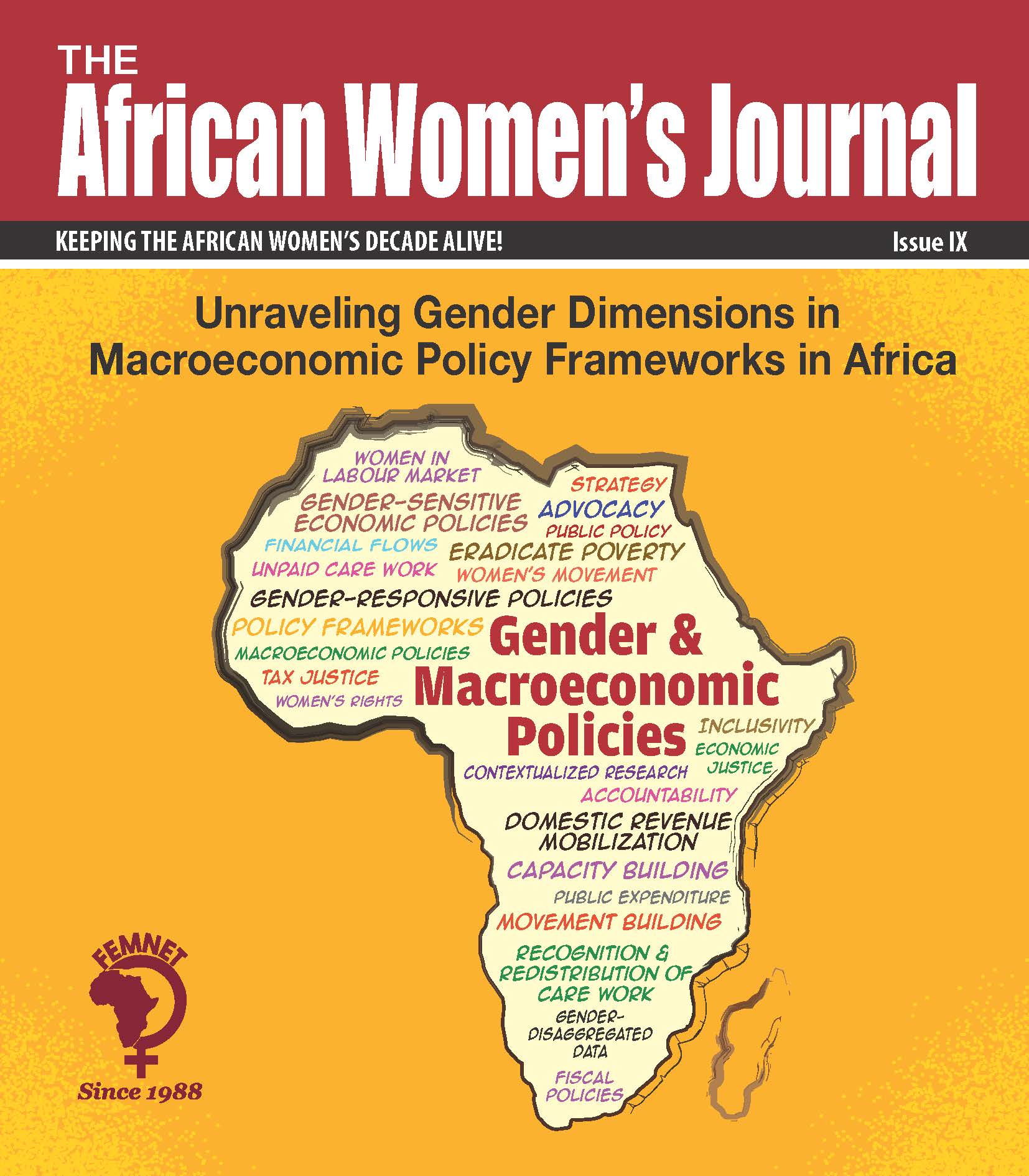
Unraveling Gender Dimensions in Macroeconomic Policy Frameworks in Africa – AWJ Issue IX
Over the years, Feminist Economists have analyzed macroeconomic policies and proposed alternative economic policies that put women’s human rights and gender equality at its center. The women’s movement more broadly is recognizing the need for a fundamental rethinking of macroeconomic policy frameworks so that they address the needs and interests of both men and women and address all inequalities.
Macroeconomic policies have a critical role to play in the realization of women’s rights – for instances the allocation of maximum available resources, privatization of public services, recognition and redistribution of unpaid care-work, taxation and financing for development. Without understanding the impact of macroeconomic policies on the advancement of women’s rights and gender equality, development stakeholders will continuously fail to respond to systematic and structural issues that continue to perpetuate inequalities including gender inequalities, thereby risking to continue addressing symptoms instead of the root causes of the problem.
This ninth issue of the African Women’s Journal features rich articles from our members and partners in different parts of the continent on how the current macroeconomic models are impacting gender equality and women’s human rights in the African context. We are convinced that the ability to understand and analyze macroeconomic policies from a feminist perspective will enable activists to advocate for economic policy change that impact on women and girls lives positively.






